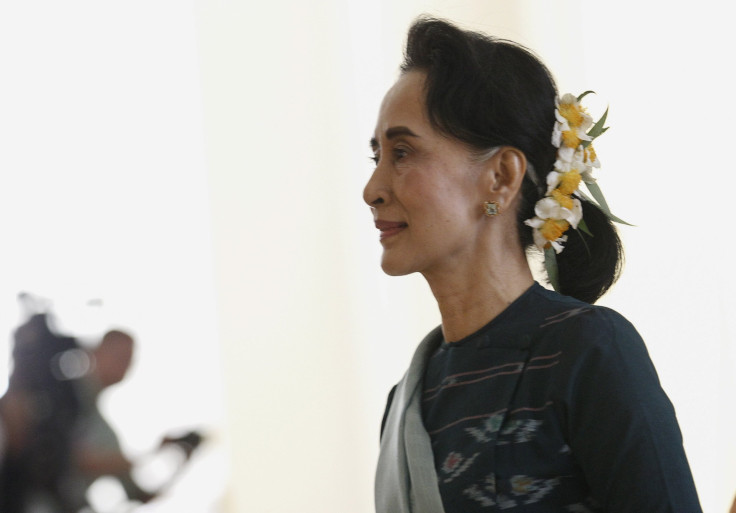Myanmar Embassy Says Holocaust Museum 'Misled' In Rescinding Suu Kyi's Award

The United States Holocaust Memorial Museum stripped a prestigious human rights award off Nobel laureate Daw Aung San Suu Kyi due to her refusal to stop or condemn military violence against the Rohingya Muslim minority. However, in a statement issued late Wednesday, the Myanmar Embassy in Washington said the museum was "misled and exploited by people who failed to see the true situation in making fair judgment on the situation in Rakhine state."
Rohingyas, often described as the world’s most persecuted minority from Myanmar’s northern Rakhine state, have suffered state-sponsored discrimination. Roughly 700,000 of Rohingyas have fled across the border to Bangladesh, Malaysia and Thailand, after a rapid increase in violence against the community. The refugees reported torture, arson and murder by Myanmar security forces.
On Wednesday, the U.S. Holocaust Memorial Museum announced it rescinded Suu Kyi’s Elie Wiesel Award, bestowed on her in 2012.
“It is with great regret that we are now rescinding that award. We did not take this decision lightly,” the museum said in a letter addressed to Suu Kyi, who is Myanmar’s State Counsellor. The museum said it “has been closely monitoring the military’s campaign against the Rohingya,” as well as Suu Kyi’s handling of her government’s response.
“We understand the difficult situation you must face in confronting decades of military misrule and violence in your country and that institution’s still powerful constitutional role,” the statement continued. “However, the military’s orchestration of the crimes against Rohingya and the severity of the atrocities in recent months demand that you use your moral authority to address this situation.”
The letter urged Suu Kyi to use her position to cooperate with international efforts “to establish the truth about the atrocities committed in Rakhine State and secure accountability for perpetrators” and to bring changes to Burmese law.
"While Myanmar has taken important first steps on the road to democracy, any transition that does not protect the country’s most vulnerable communities will be deeply flawed," the statement added.
The U.S. and other countries have accused Myanmar authorities of ethnic cleansing. The United Nations special envoy on human rights in Myanmar said the killings bore “the hallmarks of a genocide.”
In 2016, several Rohingya women accused Burmese soldiers of rape or sexual abuse. “They took me inside the house. They tore my clothes off and took my head scarf off,” a women, U Shey Kya, said in an interview at the time. “Two men held me, one holding each arm, and another one held me by my hair from the back and they raped me.”
The United Nations High Commissioner for Human Rights, Zeid Ra’ad Al Hussein, urged the Myanmar government in 2016 to end the “systemic discrimination” and ongoing human rights violations against the Rohingya people. A 2016 UN report on the treatment of minorities in Myanmar, stated Rohingya people are denied several rights — including healthcare, education and marriage — associated with having Burmese citizenship. The report also talked about severe restrictions on freedom of movement, forced labor and sexual violence.
© Copyright IBTimes 2024. All rights reserved.




















